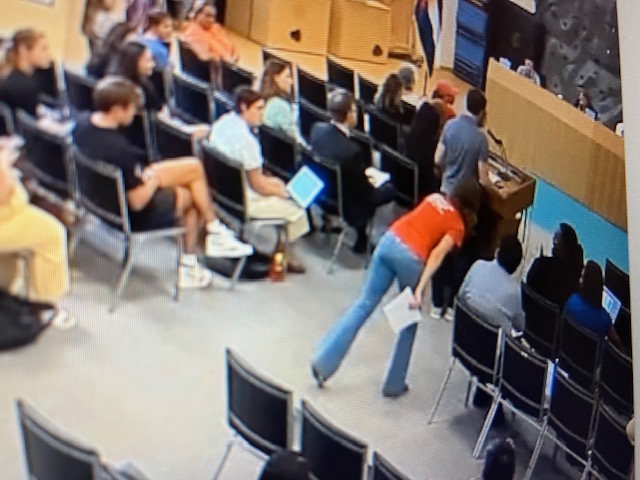Denver Public Schools have yet to decide how or whether to use the summer break to mitigate the COVID-19 pandemic’s effects on academic progress, but schools in the district’s Innovation Zones have been brainstorming ideas.
Plans for the end of the school year, the summer and upcoming school year are no more concrete for the semi-autonomous innovation schools collectively than they are for the rest of the district. But as schools in the Luminary Learning Network (LLN) innovation zone consider their options, LLN Executive Director Bailey Holyfield says one thing is certain: the strategies for “accelerating” learning will not look the same for all the zone’s schools.
“We can’t ignore the fact that our educators have been surviving a pandemic for the past year, and if they have been doing their jobs well, they have been mitigating learning loss along the way,” Holyfield said. “We have to figure out a way to balance both the fact that our children need a break as much in some cases as our educators do … Summer school for five- and six-year-olds — that means something very different than summer school for secondary kiddos.”
Innovation zones are a product of Colorado’s 2008 Innovation Schools Act. Three zones operate in Denver. Two of them, LLN and the Northeast Denver Innovation Zone (NDIZ) are overseen by autonomous nonprofit boards, though school staff remain employees of DPS. Innovation zones and schools have greater autonomy over budgets, curriculum, and day-to-day operations than more traditional district-run schools.
This degree of autonomy over how innovation zone schools approach teaching, learning and the academic calendar allows them some creativity in how they move forward.
“There are several options on the table. I’ve heard everything from once-a-month Saturday school to extra tutoring to extending the school year. All of those could be possible, and they might work for certain schools,” said Frank Coyne, an administrator at the LLN’s Denver Green School, which serves students in kindergarten through eighth grade in southeast Denver, and operates a second, middle school campus in the Central Park neighborhood.
“For us, we’re just thinking about how to use our flexibility in a way that doesn’t add days to the school year, but just thinks about how we can use our current systems better.”
Jessica Buckley, principal of the LLN’s K-5 academy Escuela Valdez in northwest Denver, said her school is considering implementing a summer program.
“Sometimes I think plans are made skipping over this step, but we’re really making sure that we understand the ‘who,’ ‘why,’ and what the [learning] gaps are, to make sure our plan matches what our kids actually need,” Buckley said.
Some Valdez teachers taught summer school in years before the pandemic, Buckley said. The goal is to get them back in the classroom this summer, but with small, entirely in-person classes, based on the idea that not all students will need more instructional time after this unusual school year. Buckley emphasized that this is all still under consideration, and not a final decision.
Denver Green School is also brainstorming how to play “catch-up” with students who need it. Coyne said he feels that one strategy DPS is considering—delaying the start of the next school year by at least a week—is considerate of students and educators in school buildings without air conditioning, but still out of touch with the reality of what Denver schools are facing.
“We’re so burnt out,” Coyne said. “What innovation status can allow us to do is use our calendar waivers to have an extended day … I feel like that’s a better solution.”
Denver Green School had implemented longer-than-average school days before the pandemic, Coyne said, and this allowed for “intervention blocks” of time that are essentially tutoring and study hall sessions for students who need them, such as English language learners or students with special needs.
Holyfield said one LLN school is considering implementing a month-long, two-hour-per-day summer program, but wouldn’t say which school, emphasizing that nothing has been decided.
Some innovation schools do have concrete plans in place.
The McAuliffe International School, a middle school in the Northeast Denver Innovation Zone (NDIZ), has decided to move forward with extending the school year two weeks — one into the beginning of June and the other beginning Aug. 16.
Principal Kurt Dennis said the school was only able to convert professional development days (days set aside for teacher training) into regular school days, rather than add more school days to the 186-day calendar locked into DPS’ collective bargaining agreement with the Denver Classroom Teachers Association.
“We aren’t able to offer more learning time without incurring tremendous costs,” Dennis said. “We just don’t have money to compensate teachers for working additional days over the summer.”
Using funds from a grant provided through the Foundation for Sustainable Urban Communities, another NDIZ school—Willow Elementary—will provide half-day, small-group tutoring sessions for three weeks in June. Amy Giles, an administrator, said the grant’s parameters require the school to target the sessions for students who qualify for the free and reduced-price lunch program.
DPS spokesperson Winna MacLaren said in a statement that schools will receive additional funds to help accelerate learning and mitigate learning loss. As for the district’s specific plans for the schools, however, there is still nothing public.
Based on feedback from surveys about learning loss, “design teams, including educators, will convene in March and April to provide final recommendations,” MacLaren said, and the plan will be both announced and implemented in April.
“I definitely appreciate [the district’s] attempt at being responsive to what school leaders want and what schools need,” Valdez’s Buckley said. “My frustration with it is that it’s too slow. We’re ready to move forward.”




